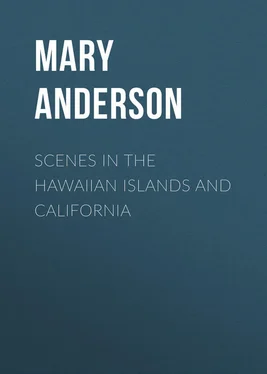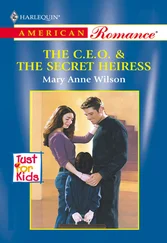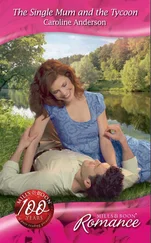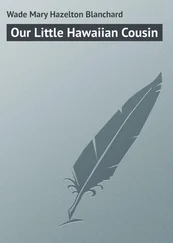The next day was the Sabbath, – our first Sabbath in what used to be a heathen land. The church-bells rung just as sweetly as in our beloved America, and the same stillness reigned throughout the town. It was like a home Sabbath. What a change in forty-three years! We went to the mission-church in the morning. It is a large stone edifice of block coral, one hundred and forty-four feet long and seventy-eight wide, and was one of the first objects we saw after passing Diamond Head. It was commenced in 1838, and was five years in building, at a cost of about thirty thousand dollars. Just think of people, who, only twenty-five years before, were in the depths of heathen darkness, building such a church, and by voluntary contributions too! They had a public meeting, and the king subscribed three thousand dollars, and others gave their pledges until the sum reached six thousand dollars. We should think that doing very well in one of our own enlightened Christian assemblies. Notwithstanding their poverty, they subscribed willingly. We, with all our conveniences for building, can hardly realize the labor bestowed on that church. The timber had to be cut in the mountain forests, and dragged by hand down to the coast. The stone was dug out of the coral reefs, and a quantity of coral had to be gathered and burned for lime. All this the people did willingly, and without pay, and the carpenters and masons gave their work freely. It was done unto the Lord.
In that church, which will doubtless stand for ages, we met a large body of natives. Grandpa made a speech to them which Rev. Mr. Clark interpreted. The church was very full. The natives are fond of bright colors, and dress in red and yellow a great deal. The women's dresses are made just like yoke night-gowns, falling to the feet without being confined at the waist at all. The men often wear their shirts outside of their pantaloons like a sack, and sometimes a coat is put on above that, making the effect rather ludicrous. Bonnets the women wear of all kinds, but principally small ones of very old styles. These were perched on the very top of the head, and were sometimes trimmed with ribbons of five or six colors. In the afternoon we went to church again. The preacher was a blind native, Pohaku, and he preached so easily, naming the hymn and repeating it just as if he was reading it, that one would never imagine he was blind.
We shook hands with four or five hundred natives that day, saying "aloha," which means "love to you," "good-will," and is their common salutation. They crowded around us, and sometimes two would get hold of my hand at once. A hand would come over a shoulder, another under an elbow, and round unheard-of corners, all expressing joy and friendship.
But we must hear the rest of Honolulu to-morrow.
THE first great event of the week was a dinner-party at Mr. Wyllie's, the minister of foreign affairs. He is a Scotchman, and wore his official badges: a broad blue band crossing his vest, with the royal coat of arms fastening it together on the hip just below the waist of his dress-coat; also a star on his breast, and two long streamers of crape hanging from his left arm in memory of the young Prince of Hawaii who died last year.
Конец ознакомительного фрагмента.
Текст предоставлен ООО «ЛитРес».
Прочитайте эту книгу целиком, купив полную легальную версию на ЛитРес.
Безопасно оплатить книгу можно банковской картой Visa, MasterCard, Maestro, со счета мобильного телефона, с платежного терминала, в салоне МТС или Связной, через PayPal, WebMoney, Яндекс.Деньги, QIWI Кошелек, бонусными картами или другим удобным Вам способом.












